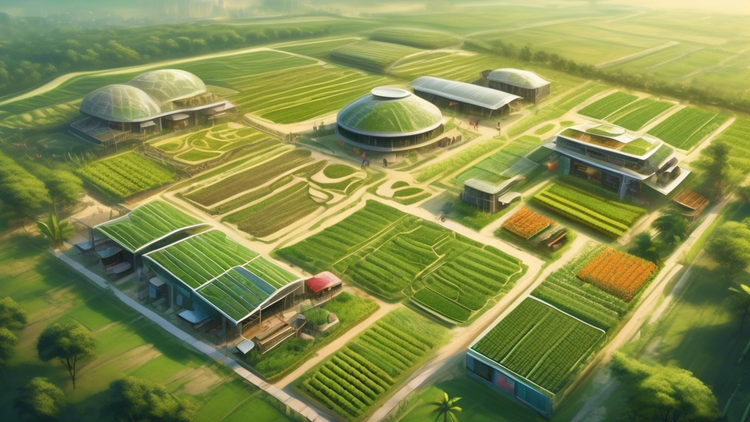Argentine 2024 agricultural exports forecasts lowered.

Overview of Argentine Agricultural Exports for 2024
Recent forecasts for Argentina’s agricultural exports in 2024 have seen a noteworthy reduction. As a key player in the global agriculture market, changes in Argentina’s export capabilities can have significant ripple effects in international trade dynamics, pricing, and supply chains. This reduction can be attributed to a variety of factors, including environmental conditions, economic policies, and global market trends.
Factors Influencing the Forecast
The lowered forecasts for 2024 are the result of multiple intertwined factors that impact agricultural production and export capabilities directly and indirectly.
Climate Variability
Argentina's agriculture heavily depends on favorable weather conditions, especially for its main exports like soybeans and wheat. Recent patterns of droughts followed by inadequate rainfall have severely affected crop yields. The El Niño and La Niña phenomena play substantial roles in these climatic shifts, influencing planting and harvesting seasons adversely.
Economic Policies
Government policies regarding export taxes and domestic subsidies also play a crucial role in the agricultural sector. Recent increases in export taxes have been seen as a move to increase domestic resources but have simultaneously discouraged extensive agricultural exports. Furthermore, fluctuating economic conditions, including inflation and currency devaluation, have made planning and investment more challenging for farmers and exporters alike.
Global Market Trends
On the global front, Argentina faces stiff competition from other major exporters such as the United States and Brazil. Changes in global market demand, coupled with trade agreements and international policies, affect export volumes and profitability. The global economic slowdown and changing dietary preferences across various markets also contribute to the revised forecasts.
Impact of Reduced Agricultural Exports
The impact of reduced agricultural exports is multi-dimensional, affecting not just the economic landscape but also social and environmental aspects:
- Economic Impact: Agriculture is a significant component of Argentina's GDP. Reduced exports mean lower foreign exchange earnings, impacting national revenue and economic stability.
- Social Impact: Agriculture also employs a large portion of Argentina’s population directly and indirectly. Lower production could lead to job losses and reduced incomes in rural areas, exacerbating poverty and social inequality.
- Environmental Impact: Increased pressure to maximize yields may lead to overuse of chemicals and water resources, posing long-term risks to soil health and biodiversity.
Takeaways and Future Outlook
Looking ahead, several steps could potentially mitigate the downturn in Argentina’s agricultural exports. Diversification of crops, investment in agricultural technology, and revising trade and tax policies could help stabilize and possibly enhance output and exports. Additionally, adapting to climate change through sustainable farming practices is essential for long-term viability.
Key Takeaways:
- Adaptation and investment in technology are crucial for overcoming environmental and economic challenges.
- Policy revisions could enhance competitiveness in the global market.
- Sustainability in farming practices will not only aid in combating climate change impacts but also in maintaining soil health and biodiversity.
Here's a thought to consider
While the forecast for 2024 might appear somber, it also presents an opportunity for innovation and revamping strategies that might redefine Argentina’s standing in the global agricultural market. By focusing on sustainable practices, diversification, and technological advancement, Argentina can navigate through current challenges and emerge stronger in the international agriculture arena.
Looking for updates? Sign up to our newsletter for weekly snippets.





